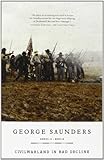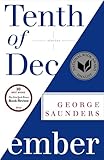
In 1998, David Foster Wallace published an essay titled “Neither Adult Nor Entertainment”[1] in Premiere magazine using not one but two pseudonyms. Though he was apparently outted against his will as its sole author, it seems strange to imagine he thought he could pull off the deception. Here’s the New York Daily News on the story: “The man of many words Bandana-wearing writer David Foster Wallace didn’t appreciate our scoop last week that he was the secret author of an article in the new Premiere about the porn business. It wasn’t that hard to unmask Foster…since the piece was littered with the same long-winded footnotes…used in his much-praised 1,079-page novel, Infinite Jest. Even with such obvious clues, Foster doesn’t think it was his writing style that exposed him, but rather that someone at Premiere ratted him out.”
 I didn’t read the Premiere article upon its release, but I don’t think I would have needed a rat to tell me who wrote it. As with most members of the relatively tiny literary community, had I been paying any attention I think it would have been pretty obvious. His voice is just that distinctive. It’s the same with any number of oft-parroted literary figures: Ernest Hemingway, Kurt Vonnegut, Charles Bukowski, Lorrie Moore, Cormac McCarthy.
I didn’t read the Premiere article upon its release, but I don’t think I would have needed a rat to tell me who wrote it. As with most members of the relatively tiny literary community, had I been paying any attention I think it would have been pretty obvious. His voice is just that distinctive. It’s the same with any number of oft-parroted literary figures: Ernest Hemingway, Kurt Vonnegut, Charles Bukowski, Lorrie Moore, Cormac McCarthy.
It works for other art forms too, of course. Show me a photo by Robert Mapplethorpe or Diane Arbus, an interminable camera movement by Bela Tarr, an Aaron Sorkin “walk and talk” sequence, play me a track from an AC/DC album, and I’ll know, I’ll know, I’ll know without even having to think about it. Some people just have Voice.
Among this generation of writers, there could be no Voice more recognizable and imitated than that of George Saunders. And with good reason, too. A style that singular, brilliant, and incredibly New Yorker-friendly is rarer than a lottery win.


 Like everyone, I was wild about Saunders’s first collection, CivilWarLand in Bad Decline. And, like everyone, I was absolutely crazy about his second collection, Pastoralia. When his third, In Persuasion Nation, was released in 2007, I bought it in hardback and gobbled it up just as eagerly as the first two, this time experiencing a just a hint of disappointment. Something seemed off, or — more to the point — not off enough. I liked the new stories, sure, but they filled me with an unsettling sense of familiarity. They just seemed so…well, so similar to his others.
Like everyone, I was wild about Saunders’s first collection, CivilWarLand in Bad Decline. And, like everyone, I was absolutely crazy about his second collection, Pastoralia. When his third, In Persuasion Nation, was released in 2007, I bought it in hardback and gobbled it up just as eagerly as the first two, this time experiencing a just a hint of disappointment. Something seemed off, or — more to the point — not off enough. I liked the new stories, sure, but they filled me with an unsettling sense of familiarity. They just seemed so…well, so similar to his others.
I closed the book, slid it into its place on the shelf, and said to myself, Enough Saunders. I get it. I get the funny, invented brand names and phony trademarks, the quirky intersection of erudition and stupidity on display in his characters inner (and outer) monologues. I get his “deadpan science fiction gloss,” as The New York Times labeled it. I just get it. However much I admired his work, it had started to seem like a magic trick I’d seen a hundred times. And the magic was wearing off.
 I’ve been faithful in my Saunders hiatus since then. That is until recently, when, as part of a story exchange with a friend — picture a lazier version of a book club — I agreed to read and discuss “Victory Lap,” from the much-lauded 2013 collection Tenth of December, first published, of course, in The New Yorker. I wasn’t particularly excited about the selection, but I figured at the very worst reading a new Saunders story would essentially be like rereading one of his old ones.
I’ve been faithful in my Saunders hiatus since then. That is until recently, when, as part of a story exchange with a friend — picture a lazier version of a book club — I agreed to read and discuss “Victory Lap,” from the much-lauded 2013 collection Tenth of December, first published, of course, in The New Yorker. I wasn’t particularly excited about the selection, but I figured at the very worst reading a new Saunders story would essentially be like rereading one of his old ones.
I wanted to be wrong. But you know what? That’s exactly what it was like.
Here’s a passage, in case you haven’t read Saunders in a while. We’re in the mind of a 14-year-old boy here:
Hey, today was Tuesday, a Major Treat day. The five (5) new Work Points for placing the geode, plus his existing two (2) Work Points, totalled seven (7) Work Points, which, added to his eight (8) accrued Usual Chore Points, made fifteen (15) Total Treat Points, which could garner him a Major Treat (for example, two handfuls of yogurt-covered raisins), plus twenty free-choice TV minutes, although the particular show would have to be negotiated with Dad at time of cash-in.
One thing you will not be watching, Scout, is ‘America’s Most Outspoken Dirt Bikers.’
Classic Saunders, right? There’s something undeniably great about having Voice like that, a voice you can’t escape, like Tom Waits. Or Cher. And, career-wise, the upside must be huge. Recognition. The feeling of attachment that fans have to artistic output they feel they know because it shares an essential sameness with the work that came before. And it’s good, too. I mean, fundamentally, Saunders is a terrific writer, a great observer, a clever entertainer.
But that sameness — it’s there, and it’s nagging. There’s a downside to that much voice. An unsurprisingness. A feeling of sloggy repetition and even self-parody. At what point, after all, does Voice become a slump?
Reading “Victory Lap,” I couldn’t help wondering what it would be like if Saunders did something completely different for his next book. Wouldn’t it be interesting if he wrote a historical novel or a techno-thriller, or even if he just played it straight and wrote about real feelings and people in a way that wasn’t couched in such predictable peculiarity, in a way that wasn’t so obviously him? Wouldn’t it be exciting to see him let down those droves of hard-won fans by swerving off in a completely unexpected direction?
It’s a lot to ask, I realize. And he certainly doesn’t need to change. In fact, I might be the only one calling for it, given the MacArthur Fellowship he’s been awarded and the spot he once landed on TIME’s list of the 100 “most influential people in the world.” Not to mention that I’m understating things dramatically by saying that the coverage of Tenth of December was ubiquitous and almost rabidly positive. Lest I be misunderstood, I completely appreciate everyone’s excitement over his work. I understand that he’s a Great Writer, and, according to everyone who has met him, an inspiring teacher and a hell of a nice guy.
Still, it would be a pleasure to see him take a risk. Just as I would have loved a chance to see what David Foster Wallace might have come up with deprived of his usual toolbox of idiosyncratic tricks and techniques.
Raymond Carver successfully navigated one of these big authorial shifts, as D.T. Max reported in his 1998 New York Times piece, “The Carver Chronicles,” writing:
There is an evident gap between the early style of ‘Will You Please Be Quiet, Please?’ and ‘What We Talk About When We Talk About Love,’ Carver’s first two major collections, and his later work in ‘Cathedral’ and ‘Where I’m Calling From.’ In subject matter, the stories share a great deal…But the early collections, which [Gordon] Lish edited, are stripped to the bone. They are minimalist in style with an almost abstract feel…The later two collections are fuller, touched by optimism, even sentimentality.
The toolbox of which Carver famously deprived himself for his final collections was the often-oppressive editorial intervention of Gordon Lish, who arguably sapped the fullness from Carver’s early stories favoring a style much sparer than the author himself intended. After something of a battle between them, Carver wrested (or Lish ceded) control of his work, and the result is that his last collection swells where his early stories flatten. Again from D.T. Max at The Times: “Once Carver ended his professional relationship with Lish, he never looked back. He didn’t need to. ‘Cathedral’ was his most celebrated work yet.”

 J.K. Rowling is another author who appears to have managed an enormous and worthy transition in her career and authorial voice, following up the insane success of the Harry Potter series with The Casual Vacancy, a full-on adult novel in a completely different voice, and a bestseller despite mixed reviews. For her next book, she zagged yet again, releasing a crime novel called The Cuckoo’s Calling.
J.K. Rowling is another author who appears to have managed an enormous and worthy transition in her career and authorial voice, following up the insane success of the Harry Potter series with The Casual Vacancy, a full-on adult novel in a completely different voice, and a bestseller despite mixed reviews. For her next book, she zagged yet again, releasing a crime novel called The Cuckoo’s Calling.
Interesting to note that Rowling chose to publish the latter pseudonymously, as Robert Galbraith. It’s not unusual for writers to use pen names when dabbling in genres other than the ones that clinched their fame, presumably for the same reason that writers fall into a reliance on certain “voices” or styles to begin with — because the last thing writers want is to let down their fickle audiences. And what most readers want is more of the same.
To be fair, this, too, is understandable. Nicholson Baker’s fiction always reads like Nicholson Baker, and I love reading his books. Same for Raymond Chandler, Anton Chekhov, E.E. Cummings, Marcel Proust, and a slew of other writers with incredible and incredibly-reliable voices. That said, I’d love to see what Proust might have done in another voice, in, say, science fiction or with the story of a pair of street urchins. Or how Chandler might have written differently to tell the story of a great romance, stretching beyond his comfort zone where something entirely fresh might be born.
Maybe early writerly instruction is partly to blame for all this authorial parochialism. Aren’t we all told from the beginning that we must “find our voices?” What no one ever says is that once you wander into that swamp, you might do well to toil your way out of it again. It’s rare that you hear anyone praise authors for avoiding a reliance on a particular voice to begin with, as writers like Graham Greene, George Orwell, and Richard Yates did, or as an author like Jennifer Egan continues to do.
The careers of musicians might be instructive, the way they can change from one album to the next, as Madonna has famously done in all her various manifestations. Singer Joshua Tillman (a.k.a. Father John Misty) abandoned his solo recording career as J. Tillman and his years of success with the indie-folkster band Fleet Foxes to try something completely different, an incarnation Stereogum dubbed “his shamanic lounge-lizard Father John Misty guise.” The result has been an incredible couple of albums and what will undoubtedly go down as the most interesting and creative period of his career.
Bob Dylan should perhaps be everyone’s idol on this score. I often think about the gamble he took by going electric at the Newport Folk Festival in 1965. Everything went haywire afterwards, and he must have questioned everything. But that act did more than merely change his career, it changed culture. It’s no wonder that some artists aren’t inclined to veer into unknown territory, but the courageous ones prove that Voice is never more powerful than the moment an artist forsakes it.
[1] The piece was later republished as “Big Red Son” in his collection Consider the Lobster.
Image Credit: Wikimedia Commons.








